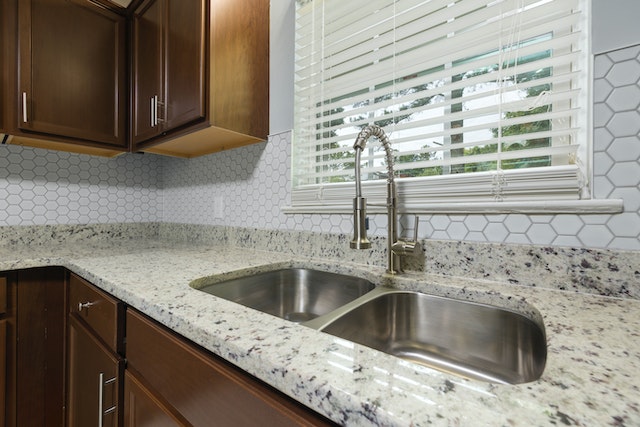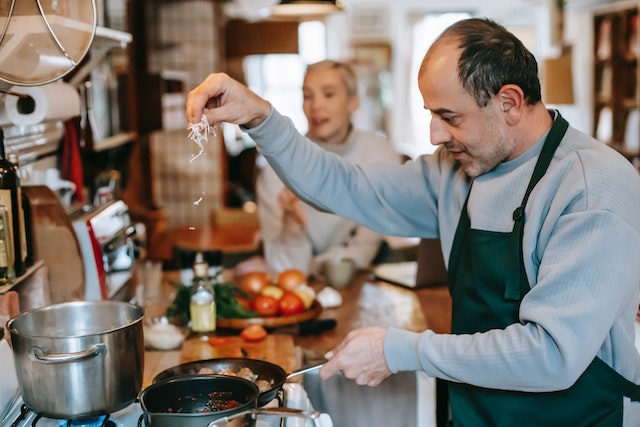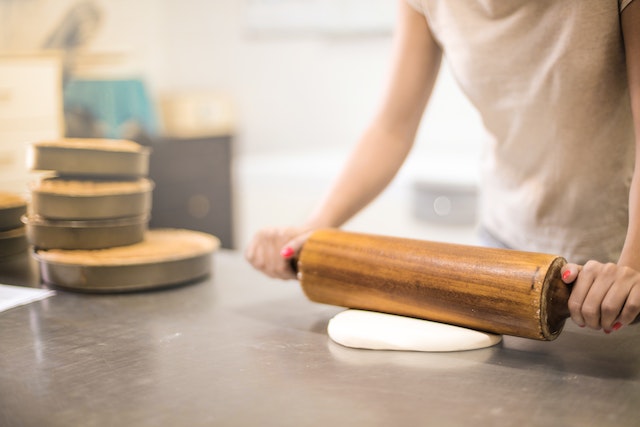What is The Effect of Oven Cleaners on Kitchen Countertops?
However effective they may be in removing baked-on oil and grime from your oven, oven cleansers are not meant to be used on any other kitchen surfaces. Since oven cleansers often include harsh chemicals that are also poisonous and corrosive, they should never be used on kitchen surfaces.
If you use oven cleansers on your kitchen countertops, you run the risk of damaging the surface and making it useless due to corrosion, fading, or loss of color. However, there is more than that, and in this post, we will go over everything else while also providing you with some other methods for cleaning your kitchen countertops.
Exactly How Does Oven Cleanser Affect Kitchen Counters?
The answer, of course, is contingent upon the nature of the countertop material at hand. There are a variety of substances in oven cleansers, and their reactions with various surfaces may range from mildly irritating to severely damaging.
Check out the results of using oven cleaner on granite, marble, tile, stainless steel, and wood worktops!
Counsttops Made Of Stone

Even while stone worktops often fare better than other surfaces when exposed to the effects of oven cleansers, they are nevertheless vulnerable to tarnishing from substances like sodium hydroxide.
This is due to the fact that most stone countertops in kitchens are made from natural stones. Natural stones, like the granite and marble used for countertops, are inert by nature and are thus stain resistant. Nonetheless, it doesn’t imply it can’t be done!
Quartz countertops, on the other hand, are particularly vulnerable to wear and discoloration. This is because the “engineered stone” or “manmade stone” used to create this particular look for kitchen counters is really fabricated in a lab with the use of specialized dyes.
These synthetic dyes are especially vulnerable to the bleaching action of oven cleaners. In these kinds of situations, natural rocks are often significantly more robust.
Do This Instead
If you have stone countertops, such as granite, marble, quartz, etc., it’s a good idea to research the care instructions for your individual stone material to learn the best way to clean it.
However, mild dish soap and warm water are often safe to use on stone surfaces. Products that are made specifically for cleaning stones like marble and granite are also available.
In addition, granite countertops need frequent sealing with a granite sealer to preserve its beauty. Since this solution penetrates the stone and creates a barrier, it is considerably more difficult to discolor the countertops.
Tiled Work Spaces

Though tile worktops are uncommon, many homeowners resort to using oven cleansers on them when they get upset with the persistent dirt that accumulates in the grout lines.
The chemicals in the oven cleaner could make it sound like a smart idea to clean the grimy grout in your bathroom, but in reality, you’re doing more harm than good.
Oven cleaners have a tendency to erode away at the surface finish and eventually create grout issues. Oven cleaners are not the solution when it comes to maintaining your tile surfaces.
Do This Instead
Instead, combine equal parts of dish soap and warm water in a spray bottle or a separate basin. Cleaning the tiles thoroughly with a sponge or towel can make them appear like new.
If you want to do it yourself, you may use an old toothbrush or a toothpick to clean the grout, although specialist grout cleaning equipment are available as well.
You may also purchase specialist equipment that scrapes away the top layer of grout, leaving behind a brand-new, easy-to-clean surface.
Stainless Steel Countertops

Countertops made of stainless steel are standard in both new homes and commercial kitchens, but what happens if you try to clean them with oven-cleaning spray?
Depending on the composition, the oven cleaner’s chemicals may leave a stain on the stainless steel. Some steel countertops may be able to withstand the spray, but it’s not worth the risk since the chemicals may transfer to any food that’s cooked on them.
Do This Instead
These kitchen counters may be easily maintained with a weekly cleaning using a solution of warm water and dish soap. Because it is so hard to scratch and stain, stainless steel makes for great kitchen counters that can be easily maintained.
If you need to get rid of stubborn dirt or grime, fill a spray bottle with hot water and white vinegar, let it stay for a few minutes, and then wipe it away with warm soapy water.
Butcher’s Blocks and other Wooden Work Surfaces

AVOID using oven cleaning on wooden kitchen counters, particularly if they have a thin laminate-style veneer.
Use with caution, as the bubbling reaction that results converts the surface into a weird sticky paste and may completely damage the wood counters.
If you use oven cleaner to clean your wood counters, you might end up having to replace the whole surface.
Do This Instead
Wooden counters are easily maintained by wiping them off with some gentle soap and warm water. Use a spray bottle and a clean towel to apply it, then wipe it down. Put somewhere to dry naturally or use a dry towel to remove extra moisture.
Butcher blocks and other wooden surfaces should never be submerged in water since doing so may promote mold, mildew, and rotting.
Conclusion
This essay should have made it clear that using oven cleaning on your kitchen counters is a bad idea. When it comes to getting rid of baked-on grease and filth, nothing beats oven cleaning. However, the harsh chemicals in oven cleaners may have a disastrous impact on kitchen counters, perhaps ruining them forever.




